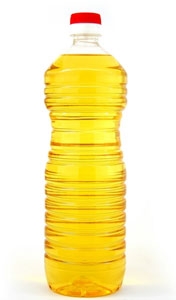Biodiesel as an Alternate Fuel

Biodiesel refers to a vegetable oil or animal fat based diesel fuel
consisting of long chain alkyl is typically made by chemically these
oils with an alcohol. Biodiesel is meant to be used in standard diesel
engines and is thus distinct from the vegetable and waste oils used to
fuel converted diesel engines. Biodiesel can be used alone, or blended
with petrodiesel.
There was a recent White Houseís announcement calling for expanded
production of biofuels (36 billion gallons by 2022 to be exact). But
more biofuels is only part of the equation when it comes to reducing
greenhouse gas emissions and our reliance on petroleum carbon based
fuels. Vehicles must be ready and sometimes converted to this usage.
Enterprise Holdings just announced that it will convert its entire fleet
of Alamo Rent A Car, Enterprise Rent-A-Car and National Car Rental
airport shuttle buses to biodiesel by spring of this year. Thatís more
than 600 buses throughout more than 50 North American markets.
A system known as the "B" factor is often used to state the amount of biodiesel in any fuel mix. For example fuel containing 20% biodiesel is labeled B20, while pure biodiesel is referred to as B100.
Biodiesel can also potentially be used in some boilers or furnaces as a heating fuel in domestic and commercial boilers. In some cases there may be addtional maintenance issues.
EPA studied biodiesel air emissions and concluded that that unburned hydrocarbons, particulate matter and carbon monoxide are all significantly reduced. On average a B100 fuel would have 67% less unburned hydrocarbons and 47% less particulates as air emissions.
Starting immediately, Enterprise will use at least B5 (5 percent biodiesel) in all of its shuttle buses, with a higher concentration of biodiesel, B20, being used in nine markets (Boston, Chicago, Denver, Detroit, Los Angeles, Miami, Raleigh/Durham, San Diego and San Antonio). The company plans to extend the B20 blend to the remaining markets over the next five years, with 50 percent of the change over complete by the end of next year.
The carbon reduction in the first year of using biodiesel in the shuttle buses will be the equivalent of retiring 40 buses from Enterpriseís fleet. It will also reduce use of petroleum diesel by about 420,000 gallons in the first year.
The company announced its biodiesel conversion plans at the National
Biodiesel Board (NBB) 2010 National Biodiesel Conference & Expo in
Dallas.
For further information: http://en.wikipedia.org/wiki/Biodiesel or http://www.keystogreen.com/
©2010. Copyright Environmental News Network To subscribe or visit go to: http://www.enn.com